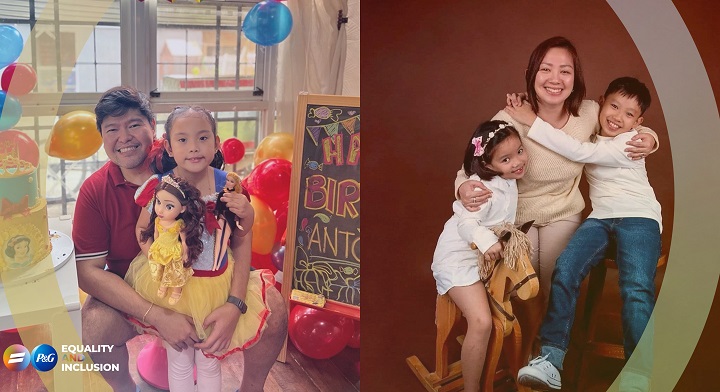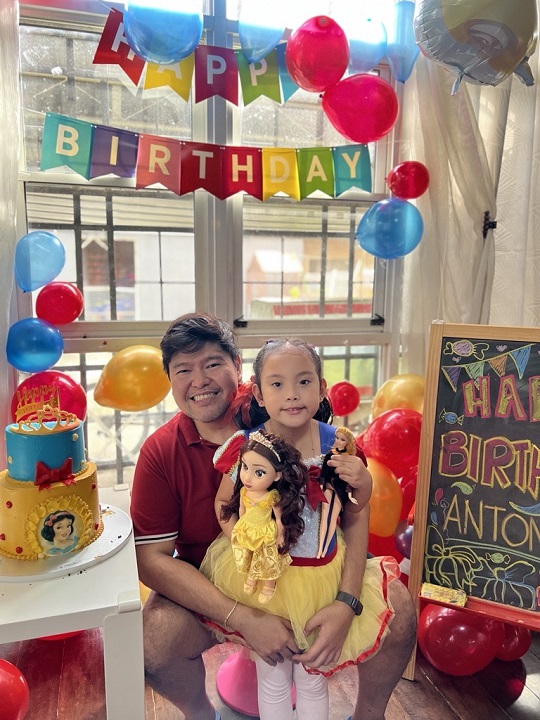 We are taking a closer look at how a company that serves most Filipino households supports its own employees and their families. Procter & Gamble (P&G), the manufacturer of leading household products such as Ariel, Pantene, Pampers, and Gillette, champions all kinds of families through its progressive policies, programs, and practices.
We are taking a closer look at how a company that serves most Filipino households supports its own employees and their families. Procter & Gamble (P&G), the manufacturer of leading household products such as Ariel, Pantene, Pampers, and Gillette, champions all kinds of families through its progressive policies, programs, and practices.
The Company believes that caring for home and family has no gender. Through its various efforts that champion equality and inclusion, P&G provides equal access and opportunity for every employee to learn, grow, succeed, and thrive regardless of their gender, background, religion, or sexual orientation.
Taking pride at work
Hendra Lim, P&G’s Director of Finance for the Sales Department and Market Strategy & Planning, shares about the company’s progressive culture and policies. In 2015, Lim had to take an earlier sabbatical so he and his same-sex partner could welcome the early arrival of their twin sons via surrogacy.
“Although I felt guilty for the sudden absence that I had to take, my former manager and mentor assured me that P&G has policies that will allow me to take an extended leave and focus on my duties as an incoming father to my twins.”
The company has many industry-leading policies, among which they also recognize domestic partners as eligible dependents of employees. Lim and his long-time partner are able to maximize the company benefits to support their family life.
Balancing parenthood and career
Among the company’s inclusive policies is their industry-leading “Share the Care” parental leave policy. This progressive policy provides all P&G parents with eight weeks of fully paid parental leave and enables all kinds of P&G parents to share the load of parenting and have equal opportunity bond and care for children new to their family. It applies to all new parents, regardless of gender, marital status, and biological or adoptive status. For fathers particularly, it goes beyond the standard seven days paternity leave mandated by Philippine law. This challenges the outdated stereotype that only women should be the sole, full-time caregiver in the early stages of a child’s life.
Single parent and Finance Director Caloy Ignacio unexpectedly took on his most important role when he adopted his niece following his sister’s untimely passing. Now that the adoption has been finalized, he plans to take his parental leave under P&G’s Share the Care program so he can spend more time with his daughter.

He says, “The past years have been challenging for me, but P&G has been there for me all throughout to help me balance fatherhood and my career.”
Family life as a priority
Katrina Belen also juggles being a single parent to two kids in her Finance Operations Director at P&G.
Belen shares, “In P&G, we see our leaders talk often about having their family as a priority. It gives a strong signal that family life will always be an employee’s priority. I love how my managers have been very deliberate in planning my work priorities and role assignments that are consistent to both my career and personal needs. My manager gives me flexibility to align my personal schedule with work, where I am able to stay present in my kids’ daily needs and special occasions.”
P&G provides FLEX leaves on top of vacation leaves, which allows employees to take leave for personal milestones or emergencies. P&G is also a pioneer for flexible work arrangements ever since the early 2000’s, which helps employees balance work and personal life.
P&G’s commitment to supporting all kinds of families is also reflected in its advertising. Its most recent advertising for Pampers Philippines dubbed #MoreThanGold highlights Pampers’ commitment to support all kinds of parents in raising happy, healthy babies. The ad shines a light on the love and hard work of single parenthood as well as the negative taboos and judgment single parents experience. As part of the campaign, Pampers pledged to support World Vision Philippines’ Go Baby Go program, which provides early childhood development and trainings for children of single moms in their assisted communities.

